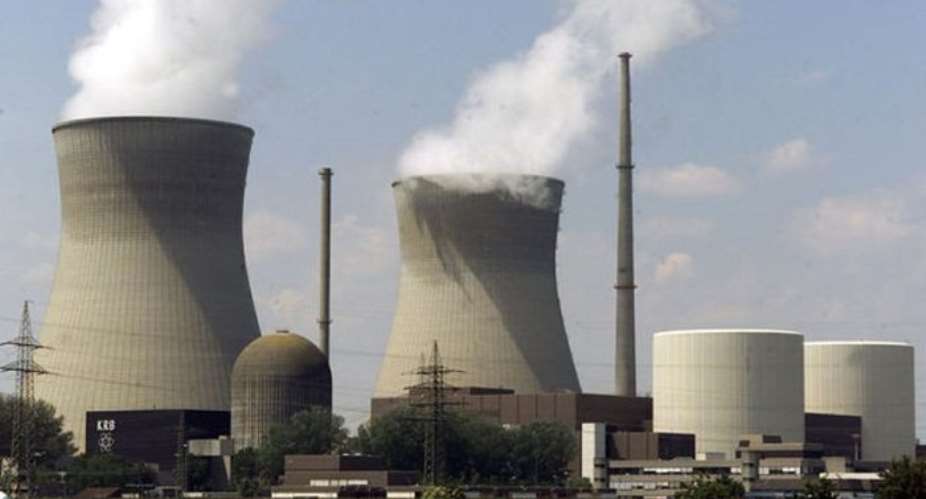The article below from {World Nuclear News}, reports on important agreements with Russia to build nuclear power plants in Africa. Beyond providing energy, nuclear plants will provide jobs and new shill levels for the tens of million of young Africans entering the work force. Along with China, Russia is assisting African nations in building vitally needed infrastructure, which they need to become industrialized, with productive manufacturing and agriculture sectors. This is very good news for the African continent.
Read: Nuclear Energy Can Bridge the Skills Gap in Africa
Excerpts below:
Speaking at the round table session titled The Contribution of Nuclear Technologies in the Development of Africa, Alexey Likhachov said:
“We are talking about solutions related to raising the level of education, energy security, applying nuclear solutions to medicine, agriculture, as well as other scientific research and development. Every dollar invested in our projects in any country, brings two dollars in localisation to that country. This significantly increases the country’s GDP.”
Rosatom said a job is created for every 0.5 MWe of electricity produced at a nuclear power plant, meaning that a 1000 MWe plant provides employment for more than 2000 people. Human capital development is both “a condition and a consequence” of nuclear power plant construction projects, it added.
Through joint educational programmes, the Russian state nuclear corporation is attracting applicants from African countries to its partner universities in Russia, it said, and Rosatom has already awarded up to 50 scholarships to students from Rwanda and Zambia. They are among hundreds of other African students from countries such as Algeria, Egypt, Ethiopia, Kenya, Nigeria and South Africa, it added.
Development
Claver Gatete, Rwanda’s minister of infrastructure, said: “In order to grow our industries from 17% GDP to 30% GDP, and to achieve our ambition of becoming a high-income country by 2050, we want to take advantage of nuclear to enhance our socio-economic development.” Rwanda sees a clear link, he said, between nuclear technologies and the country’s vision of development.
Citing data from the World Economic Forum, Rosatom noted that 15 to 20 million young people are to enter Africa’s workforce in the next two decades, meaning that 15% of the world’s working-age population will be in Africa, with 60% under-25.”
Glazyev Warns Africans About IMF Looting Policies
The Russian economist Sergei Glazyev, who was for years an economic adviser to President Putin and is today minister in charge of integration with the Eurasian Economic Union, spoke to the gathered leaders at the Russia-Africa forum in Sochi, and warned them about the policies of the International Monetary Fund (IMF). According to Moscow Times, Glazyev reported that IMF policies had led to about $1 trillion in capital flight from Russia, and another $1 trillion or so from the other 14 post-Soviet countries over the last 30 years.
Glazyev said the IMF has adopted a similar approach in Africa as the former Soviet Union. “Of course, Africa has been exploited for much longer. We have been living in this financial and economic environment for only 30 years.” Moscow Times added that “Glazyev also advised African countries to keep full control over their natural resources and infrastructure, in line with his advocacy in Moscow for greater economic self-sufficiency.”





 Dumsor must stop vigil part 2: We’ll choose how we demonstrate and who to partne...
Dumsor must stop vigil part 2: We’ll choose how we demonstrate and who to partne...
 2024 elections: NDC stands on the side of morality, truth; NPP isn't an option —...
2024 elections: NDC stands on the side of morality, truth; NPP isn't an option —...
 Akufo-Addo has moved Ghana from 'Beyond Aid' to ‘Beyond Borrowing’ — Haruna Idri...
Akufo-Addo has moved Ghana from 'Beyond Aid' to ‘Beyond Borrowing’ — Haruna Idri...
 Train crash: NDC is full of evil mindset; driver who 'deliberately' parked the c...
Train crash: NDC is full of evil mindset; driver who 'deliberately' parked the c...
 Dumsor: Energy Minister must be fired; it’s becoming unbearable — IES
Dumsor: Energy Minister must be fired; it’s becoming unbearable — IES
 #DUMSORMUSTSTOP: IMANI responds to Yvonne Nelson's call for a joint vigil
#DUMSORMUSTSTOP: IMANI responds to Yvonne Nelson's call for a joint vigil
 'Obiara b3didi' — Manhyia South NPP Chairman fights for resourcing of NPP grassr...
'Obiara b3didi' — Manhyia South NPP Chairman fights for resourcing of NPP grassr...
 Dumsor: This thing is becoming unbecoming, collapsing our business — Nana Ofori ...
Dumsor: This thing is becoming unbecoming, collapsing our business — Nana Ofori ...
 Dumsor: It'll be no more by the end of April — Gideon Boako assure Ghanaians
Dumsor: It'll be no more by the end of April — Gideon Boako assure Ghanaians
 "I can now see clearly with my two eyes, thanks to the generosity of Afenyo-Mark...
"I can now see clearly with my two eyes, thanks to the generosity of Afenyo-Mark...
